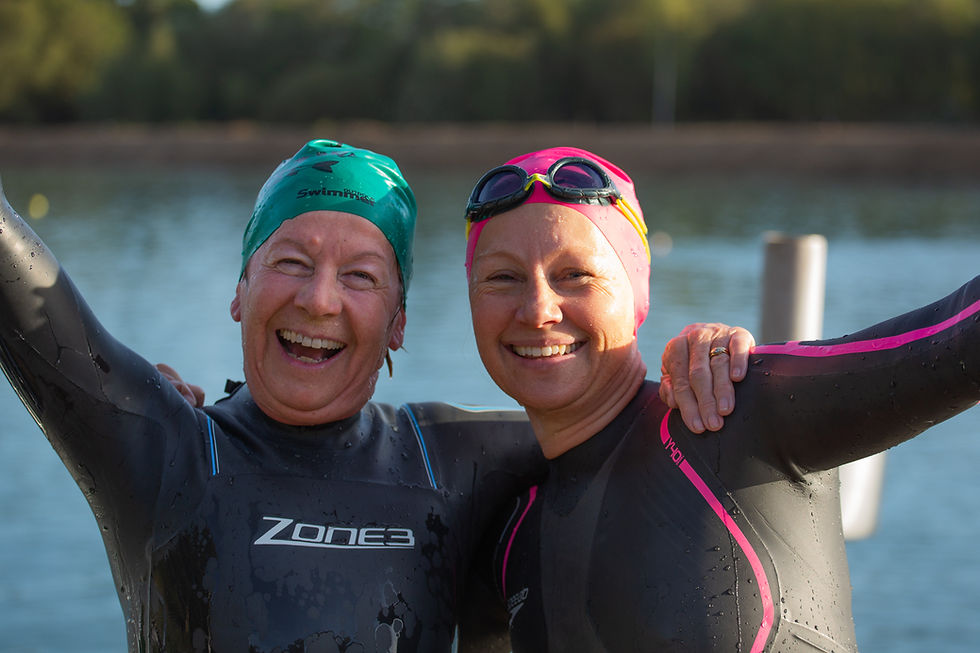Wild swimming
- Heather Schelhase

- Jan 21, 2021
- 2 min read
What is wild swimming?
Swimming in any natural body of water whether it be a lake, pond, river or the sea.
The most amazing experience!!! The pure joy of being in the open water.
There is something very grounding about swimming outdoors. The (entertaining) pain of immersing yourself into cold water is rewarded with an explosion of endorphins. The natural high afterwards allows the mind, body and soul to feel calm and at ease. The smile and glow on your face paints a beautiful picture.

The camaraderie of getting changed, organised with some added faffing and then taking the plunge into the cold water is a wonderful experience. All different ages, swim abilities all come together to enjoy the water. Vanity is left behind for a short while. Glamour is shelved as you climb or slide down a river bank into the river. The shrieks of laughter are contagious.

The ecotherapy – connecting with nature, has an amazingly positive effect on your health. Swimming all year round you are able to watch the change of the seasons in all their glory. Dodging the swans, watching the Heron stalk us with his stare on the river bank, dragon flies dancing in the reeds and the noise of the bird activity in the trees is something to be cherished. You are truly connected to nature.

Beware wild swimming is addictive and you become obsessed about planning where to swim next. Each open water swim brings a new experience from swimming in the bright sunshine to the fog or rain. The laughing and encouragement from fellow swimmers means you never feel you haven’t accomplished anything. Your swim is your journey.
As glorious as wild swimming is you should always take caution.
1. Swim with a partner or tell someone where you are going.
2. Natural water can be very cold and hypothermia happens very quickly. Always acclimatise before leaving the river bank or ponds edge.
3. Beware of currents. High rainfall means more water, so faster flow.
4. Never dive into the open water because of cold water shock, tree branches, rocks and water depth might not be known.



















Comments